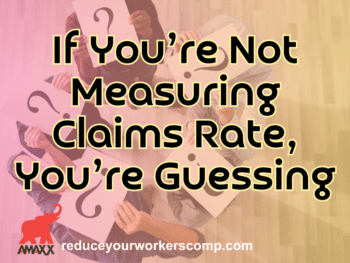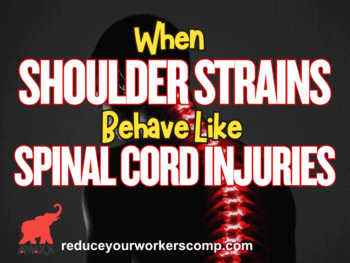
Too many organizations in the workers’ compensation system fail to appropriately manage their vendors and instead assume they are doing what is expected. These companies miss out on opportunities to positively impact their workers’ compensation programs and their bottom lines.
Vendor partners should be just that: partners in your business. Their relationship with you should be transparent and cost effective. Rather than outside entities, they should be considered part of your overall team.
Click Link to Access Free PDF Download
“13 Research Studies to Prove Value of Return-to-Work Program & Gain Stakeholder Buy-In”
Select the Most Appropriate Vendor
The first step in creating effective partnerships with vendors is to choose the ones that are best for your particular organization. Whether you seek a third-party administrator, medical providers, pharmacy benefit manager, medical bill review company, or something else, the process is generally the same. You need to first understand what you want from a particular vendor.
Analyzing your business requirements is a good first step, as that can lead you to the type of vendor(s) you need. Form a diverse team that will be working most closely with the vendor and brainstorm over the most important requirements that will benefit your organization. Come up with an outline of the ideal vendor, and include questions to ask prospects. Then identify prospective vendors that at least meet your minimum requirements.
In evaluating the vendors make sure you keep to the goals outlined by the team, so you don’t get swayed by those offering all sorts of bells and whistles that you really don’t need. Ask questions about the services the vendor provides and the success rates. You can also ask for a client list or at least a couple of clients to speak with.
You may also ask if the company conducts internal audits and, if so, if it will share the findings with you on a regular basis. While the vendor may not routinely share all aspects of an audit you can at least get a sense of challenges the company faces.
Set up the Contract
This part is crucial as it sets the tone for the partnership. Consider using a service level agreement (SLA) and/or risk/reward strategies. A SLA defines the level of service expected, and includes things such as time frames for various reports. You want to include performance measures so you can hold the vendor accountable to them. The contract may also include incentives for the vendor to meet or exceed expectations, and penalties for failing to meet them.
Before you enter into a final agreement, decide how long or short of a term you want and whether you want an exclusive relationship with the vendor. It’s also important to look for hidden costs. Find out, for example, if a price quoted includes data capture or reporting.
Communicate Regularly
Now that you have the vendor on board:
- Are you getting timely reports that are clear and actionable?
- Is the vendor keeping you in the loop when challenges arise?
Minor problems like these can be avoided or easily cleared up with ongoing communication.
Evaluate
The vendor’s performance should be monitored, especially once the contract is implemented. Qualitative or outcome based performance measures agreed to by your internal team and included in the contract should be met. For example, are the providers in your network using evidence-based medicine? Do they meet the expected return-to-work rates?
FREE DOWNLOAD: “13 Research Studies to Prove Value of Return-to-Work Program & Gain Stakeholder Buy-In”
Quality assurance audits conducted by independent reviewers can also be used to point out problems that may be hindering your workers’ compensation program.
Finally, make sure you are getting the aggregate data that you need, when you need it. Review reports the vendor gives you to make sure they provide valuable information that will help you further improve your overall workers’ compensation program.
Conclusion
Outside vendors can save you money and help ensure the best outcomes for injured workers. But they need to be part of your organization. By finding the best ones and working with them closely vendors can and should be a valuable asset to your organization.
Author Michael Stack, CEO Amaxx LLC. He is an expert in workers compensation cost containment systems and helps employers reduce their work comp costs by 20% to 50%. He works as a consultant to large and mid-market clients, is co-author of Your Ultimate Guide To Mastering Workers Comp Costs, a comprehensive step-by-step manual of cost containment strategies based on hands-on field experience, and is founder & lead trainer of Amaxx Workers’ Comp Training Center.
Contact: mstack@reduceyourworkerscomp.com.
Workers’ Comp Roundup Blog: https://blog.reduceyourworkerscomp.com/
©2017 Amaxx LLC. All rights reserved under International Copyright Law.
Do not use this information without independent verification. All state laws vary. You should consult with your insurance broker, attorney, or qualified professional.




























